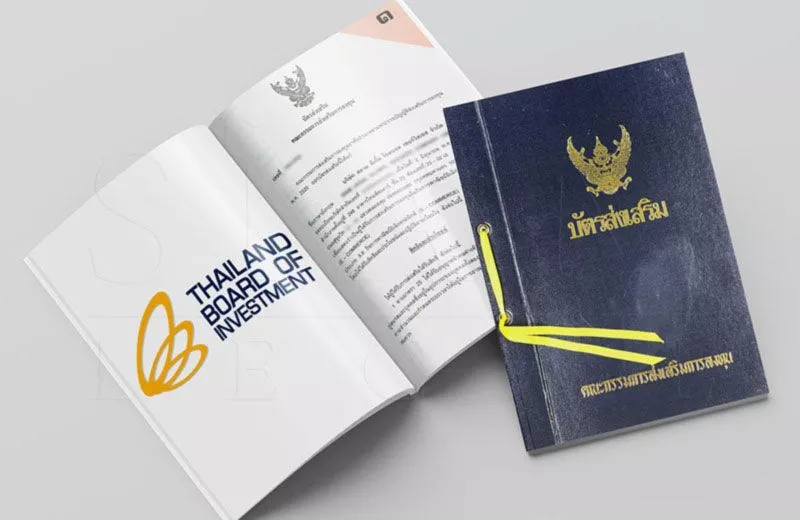Registering a company under the Thailand Board of Investment (BOI) opens up a whole host of fiscal and non-fiscal incentives for foreign investors. However, achieving BOI status takes time and care.
Documents like a memorandum of association, details about shareholders, and copies of passports or IDs are required. Other files include a business plan and forecasts for investments and profits.
Requirements
If you are planning to register a company under the Thailand Board of Investment, it is advisable to seek guidance from legal and business professionals to ensure that your application meets all requirements. These requirements include the preparation of a detailed business plan. This document will be scrutinized by the reviewing BOI official, so it must be exhaustive and accurate. It should cover every aspect of the company’s business in Thailand, including management, ownership, processes, financing, human resources, investment, technology, and profitability.
It should also include a detailed inventory of all equipment and materials used by the company, as well as a list of all employees and their job titles. The company should also prepare financial statements and projections for the first three years of operation. Lastly, the company must submit a list of directors and their nationalities. At least one of these must reside in Thailand to sign documents on behalf of the company.
Several incentives are available for companies registered under the Thailand Board of Investment. These incentives are based on the type of industry and region. For example, a five-year corporate income tax exemption is provided for high-technology activities that are vital to the development of Thailand. Incentives are also available for activities that contribute to the production of goods for export. Other benefits include a removal of the foreign worker quota and a reduction in value-added tax (VAT) registration fees for certain products.
Procedures
Before applying for a BOI certificate, investors must first prepare a business plan. This document should address every aspect of the business, including management, ownership, processes, finances, investments, and technology. The plan will be reviewed by a BOI official, and any shortcomings could result in the rejection of an application. Working with a professional to assist with this process is highly recommended.
After preparing a comprehensive business plan, investors must deposit a minimum of 1 million baht as capital. They must also open a bank account and choose an original name for their company. In addition, they must obtain a tax ID number and register for VAT if their revenue is above 1.2 million baht. They must also submit copies of the directors’ passports or IDs and the company’s registered address.
Once approved, the BOI will issue a business registration certificate that must be displayed in a prominent location. Additionally, companies must report any changes to the BOI within 30 days of those changes. Furthermore, BOI-promoted companies are required to make a tax prepayment of 50% of their estimated tax liability within two months after the end of their accounting period. In addition, these companies must display a business name board in both Thai and English on the front of their main office and any branch offices.
Taxes
The BOI is an agency under the Prime Minister’s Office that safeguards foreign investment in the country. It offers both fiscal and non-fiscal incentives to companies registered with it. For example, it waives corporate taxes for up to thirteen years. Incentives are based on a variety of criteria, including the company’s potential impact on Thailand’s economy and industry. However, a company must adhere to strict guidelines and ensure that its work doesn’t harm the environment.
The first step is to create a comprehensive business plan that meets the BOI’s requirements. This is essential, as an inadequate plan will likely get rejected. It should include details of all aspects of the company’s operations in Thailand, including management, ownership, production processes, financing, human resources, and technology.
Once the application is complete, it must be submitted to a BOI officer. The approval process can take between 40 working days for investments equal to or less than 200 million baht, and 90 working days for those exceeding 2,000 million baht. In some cases, the project must also be approved by the Ministry of Commerce, the National Economic Development Board (NEDB), or the Industrial Promotion Centers. It is best to consult with experts on the matter before submitting an application. They can help you navigate the process and avoid unnecessary delays.
Incentives
Incentives are available for registering businesses under the BOI, but they are dependent on the project’s location. Special economic zones (SEZs) are established in ten provinces bordering neighboring countries, where the government offers tax and non-tax incentives for logistical activities such as warehouses near the borders; distribution; services; manufacturers that use raw materials from nearby markets; and knowledge-based industries, like R&D centers.
Companies may also receive incentives for establishing regional operating headquarters and research and development centers in Thailand. To qualify, the company must meet certain minimum requirements for capital investment and debt-to-equity ratios. The company must also establish a technical and personnel management center in Thailand, or provide support, service, or training for its associated enterprises. The company must also have paid-up capital of at least THB 10 million on the last day of each accounting period, and at least ten knowledgeable and skilled employees working full time for its international business centre (IBC).
Generally, foreigners may not own majority stakes in most businesses under the FBA, but U.S. nationals are exempt from these restrictions under the U.S.-Thailand Treaty of Amity and Economic Relations. In addition, the Thai government has taken steps to become a leader on Responsible Business Conduct (RBC).
State-owned enterprise (SOE) investors can enjoy the same tax benefits as private enterprises. However, SOE senior managers report to a cabinet minister or SEPO and corporate board seats are typically given to politically affiliated individuals.



